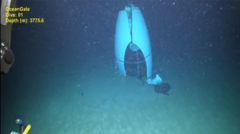Countries in the Amazon region are failing to “follow the money” in their investigations of environmental crimes, the Financial Accountability and Corporate Transparency (FACT) Coalition said in a new report this week.
The report’s authors analyzed the details of 230 cases involving environmental crime in the region from 2014 to 2024. Of these, 208 originated in Columbia, Peru or Ecuador. The specific crimes were predominantly illegal metallurgical or mineral mining, which comprised 57 percent of the cases, following illegal wildlife trafficking at 15 percent and illegal timber harvesting at 9 percent.
Of the 230 cases, the report found less than one third of them included a parallel financial investigation. Broken down by type of crime, only 9 percent of wildlife trafficking cases included one.
This relative lack of scrutiny, it added, can create an additional incentive for such crimes because without proper financial scrutiny, a criminal enterprise can more easily relocate and resume its activities. It is also more likely to lead to an outcome where low-level players in the scheme are caught or prosecuted while the masterminds evade detection or capture.
“Going forward, it is important to improve countries’ capacity to integrate financial investigations into their environmental crime investigation and enforcement actions. The U.S. government should support these efforts through capacity building and technical assistance to countries in the Amazon region, leveraging the existing framework of Treasury’s Amazon Region Initiative,” the authors said in a statement.
“Other regional and international stakeholders, including the Organization of American States and the United Nations Office on Drugs and Crime (UNODC), should continue capacity-building efforts related to illicit finance and environmental crime.”
The report also found the U.S. government is the most common foreign jurisdiction involved in the cases they analyzed, due to both high demand for the products involved in environmental crime and for the frequent use of America’s banking system to conceal or launder its proceeds. Forty-four percent of the cases with parallel financial investigations involved a foreign jurisdiction, with India and the United Arab Emirates also frequently coming up.















 English (US) ·
English (US) ·